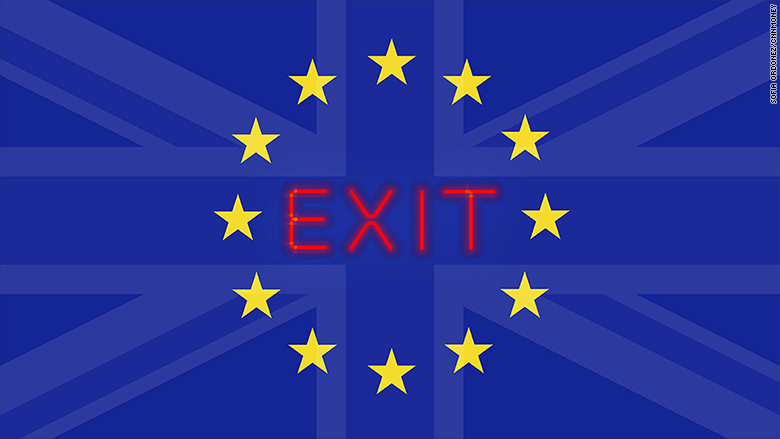Brexit, more than anything else is the result of a crisis in confidence that has been brewing among the electorate if not since the EU was formed, then perhaps since the global financial crisis of 2008. This crisis stems from a feeling of helplessness towards fixing socio-economic and political problems that are often times experienced. Those in favor of Brexit voted that way because they felt betrayed by government policies which they believe prioritize global interests over their own.
No doubt, globalization has brought advances in transportation, communication, and healthcare in even the most remote and poorest part of the world. How can one ignore the value of social media in connecting people across continents, allowing them to share interests and build long lasting relationships? Nonetheless, globalization is seen as the culprit for feelings of envy towards those that are not from the UK. The UK has close to 3 million residents from other EU countries while it struggles with refugees that have not assimilated into its population.
Political and economic elites have for so long now advocated the notion that the world is one village. What happens in Manila is equally as important as what happens in Piccadilly Circus. There is no intended maleficence in this thought process, but, in America politicians have always understood that in order to win an election, a candidate has to be in tune with the thinking of his/her local constituents and more than anything else, meet with them and listen to them. In other words, “politics is local”. It is that way because citizens of democratic societies want to feel empowered in shaping their own destinies.
However, even in America, the rise of Donald Trump is a result of that same feeling that supporters of Brexit have, and that their elected representatives abandon them as soon as they are elected.
How must one deal with the current state of affairs? To begin with, every citizen must understand that political office is not only civic service, but also, a privilege that only a few have. Political office holders at every level must not stray from their mission of representing their own people all the time. When running for office, allegiance must not be made to any political party or lobbyist, but rather to one’s own constituents. The reason why incumbents are more likely to be elected is because the deck is stacked against new comers through gerrymandering and the power of lobbyists. I would hope to see the day where the cynicism of “power above all else” and apathy is no longer a common notion among voters. I do not know how elections are run in the UK, but I can certainly claim that election laws in the US should be reformed. The money spent on presidential elections is obscene, especially if a voter understood that their local representative is far more likely to influence their wellbeing than the President.
Equally important, is an educated society that is not completely influenced by their political leanings. A free society where citizens can exercise their own power to shape their destiny requires that those citizens understand their own laws and know their politicians. Effort must go into knowing candidates and bills that are being voted on. With so much information pro or con to every candidate and every issue readily available in the papers, the internet, the news sites and ones contacts, it is easy to ingest the information, reflect on it and then make an educated decision on who to support or what to vote on. If you do not believe that you have the power to change an outcome, just imagine, for better or for worst, how Brexit succeeded even though the UK Prime Minister had put his job on the line to defeat the measure.
No doubt, globalization has brought advances in transportation, communication, and healthcare in even the most remote and poorest part of the world. How can one ignore the value of social media in connecting people across continents, allowing them to share interests and build long lasting relationships? Nonetheless, globalization is seen as the culprit for feelings of envy towards those that are not from the UK. The UK has close to 3 million residents from other EU countries while it struggles with refugees that have not assimilated into its population.
Political and economic elites have for so long now advocated the notion that the world is one village. What happens in Manila is equally as important as what happens in Piccadilly Circus. There is no intended maleficence in this thought process, but, in America politicians have always understood that in order to win an election, a candidate has to be in tune with the thinking of his/her local constituents and more than anything else, meet with them and listen to them. In other words, “politics is local”. It is that way because citizens of democratic societies want to feel empowered in shaping their own destinies.
However, even in America, the rise of Donald Trump is a result of that same feeling that supporters of Brexit have, and that their elected representatives abandon them as soon as they are elected.
How must one deal with the current state of affairs? To begin with, every citizen must understand that political office is not only civic service, but also, a privilege that only a few have. Political office holders at every level must not stray from their mission of representing their own people all the time. When running for office, allegiance must not be made to any political party or lobbyist, but rather to one’s own constituents. The reason why incumbents are more likely to be elected is because the deck is stacked against new comers through gerrymandering and the power of lobbyists. I would hope to see the day where the cynicism of “power above all else” and apathy is no longer a common notion among voters. I do not know how elections are run in the UK, but I can certainly claim that election laws in the US should be reformed. The money spent on presidential elections is obscene, especially if a voter understood that their local representative is far more likely to influence their wellbeing than the President.
Equally important, is an educated society that is not completely influenced by their political leanings. A free society where citizens can exercise their own power to shape their destiny requires that those citizens understand their own laws and know their politicians. Effort must go into knowing candidates and bills that are being voted on. With so much information pro or con to every candidate and every issue readily available in the papers, the internet, the news sites and ones contacts, it is easy to ingest the information, reflect on it and then make an educated decision on who to support or what to vote on. If you do not believe that you have the power to change an outcome, just imagine, for better or for worst, how Brexit succeeded even though the UK Prime Minister had put his job on the line to defeat the measure.







 RSS Feed
RSS Feed